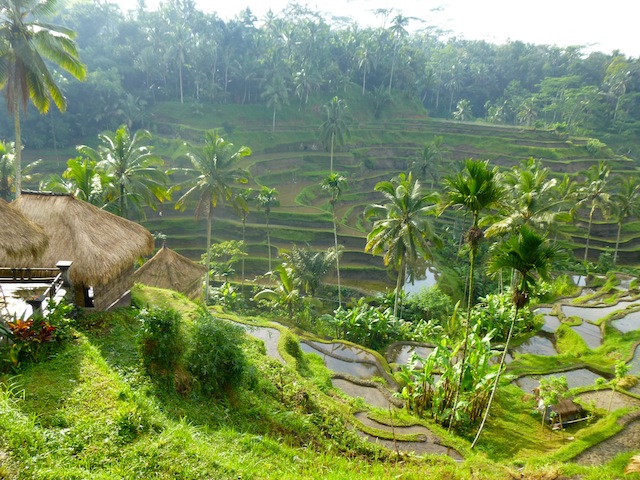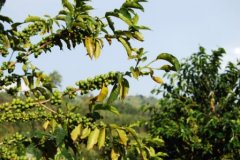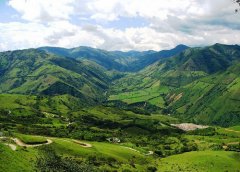Enter the coffee producing area of Kenya and African boutique coffee
Coffee growing area in Kenya
The coffee producing areas in Kenya are mainly concentrated in the plateau areas represented by Mt. Kenya. Tropical climate, acid red volcanic soil provides a natural and suitable growth environment for coffee. The main producing areas are Nyeri and Ruiru in the middle of the country.
Kenyan coffee varieties
Bourbon Bourbon was first brought to Kenya for planting. In the 1950s, the then agricultural research institution Scott Laboratory selected two excellent hybrids, SL-28 and SL-34, through unremitting efforts, subverting the long-standing prejudice of artificial breeding without excellent natural varieties. SL-28 and SL-34 help Kenyan coffee to form its own unique flavor characteristics and establish a perfect reputation in the coffee industry.
Like the choice of other coffee producing countries, although SL-28 and SL-34 have stood the test of time and cultivated generation after generation of faithful pumps for Kenyan coffee, the Kenyan government and the Coffee Research Institute (Coffee Research Foundation) have begun to promote a new variety, Ruiri 11, for the sake of coffee yield and disease resistance. The promoters assure coffee lovers that the new variety still has the classic flavor of Kenyan coffee. However, the continuous efforts have not won the recognition of coffee gluttons, who agree that the new varieties lack taste and that the future of Ruiru11 remains to be seen.
In addition to the prestigious traditional Arabica coffee, robusta coffee is also produced in the western lowlands of Kenya.
Coffee cultivation in Kenya
Mainly by large farms (Estate) and cooperatives (Cooperatives) two types. The former generally has a large planting area and has independent coffee processing facilities. Most coffee production is done by a large number of small farmers, who form coffee cooperatives. The Coffee Cooperative Society employs special managers to supervise the coffee processing of its members, even to the point of managing each coffee tree.
Compared with shading planting in many high-quality producing areas, Kenyan coffee is obviously more spicy and unrestrained, and shade trees are not common. In addition, Kenyan coffee rarely participates in certification, variety and environmental factors make the use of pesticides necessary, and organic certification, which is popular in other countries, becomes rare in Kenya.
Coffee related institutions in Kenya
KCPTA: Kenya Federation of Coffee producers and traders, Kenya Coffee Producers and Traders Association
CRF: Kenya Coffee Research Institute, Coffee Research Foundation
KCB: Kenya Coffee Exchange, Kenya Coffee Board
KCTA: Kenyan Federation of Coffee traders, Kenya Coffee Traders Association

Important Notice :
前街咖啡 FrontStreet Coffee has moved to new addredd:
FrontStreet Coffee Address: 315,Donghua East Road,GuangZhou
Tel:020 38364473
- Prev

The Alcatraguo Valley in Guatemala
Acatenango Valley: the Acatenango Valley Valley is 2000 meters (6500 feet) high, with dense shade and unique ecology, and the nearby Fuego volcano continues to erupt, making its coarse, sandy soil rich in minerals. Temperate sea breezes from the Pacific and a seasonal climate make this
- Next

Attland American Coffee Manor
Traditional Traditional Atitl n (Traditional Atitl n) is one of the five largest volcanic coffee producing areas in Guatemala, and its soil organic matter is the most abundant among the five major volcanic coffee producing areas. 90% of the traditional Atilan coffee is grown on the violent volcanic slopes of Lake Attila, where the daily breeze stirs the lake and is a slight breath to the region.
Related
- Does Rose Summer choose Blue, Green or Red? Detailed explanation of Rose Summer Coffee plots and Classification in Panamanian Jade Manor
- What is the difference between the origin, producing area, processing plant, cooperative and manor of coffee beans?
- How fine does the espresso powder fit? how to grind the espresso?
- Sca coffee roasting degree color card coffee roasting degree 8 roasting color values what do you mean?
- The practice of lattes: how to make lattes at home
- Introduction to Indonesian Fine Coffee beans-- Java Coffee producing area of Indonesian Arabica Coffee
- How much will the flavor of light and medium roasted rose summer be expressed? What baking level is rose summer suitable for?
- Introduction to the characteristics of washing, sun-drying or wet-planing coffee commonly used in Mantenin, Indonesia
- Price characteristics of Arabica Coffee Bean Starbucks introduction to Manning Coffee Bean Taste producing area Variety Manor
- What is the authentic Yega flavor? What are the flavor characteristics of the really excellent Yejasuffi coffee beans?

